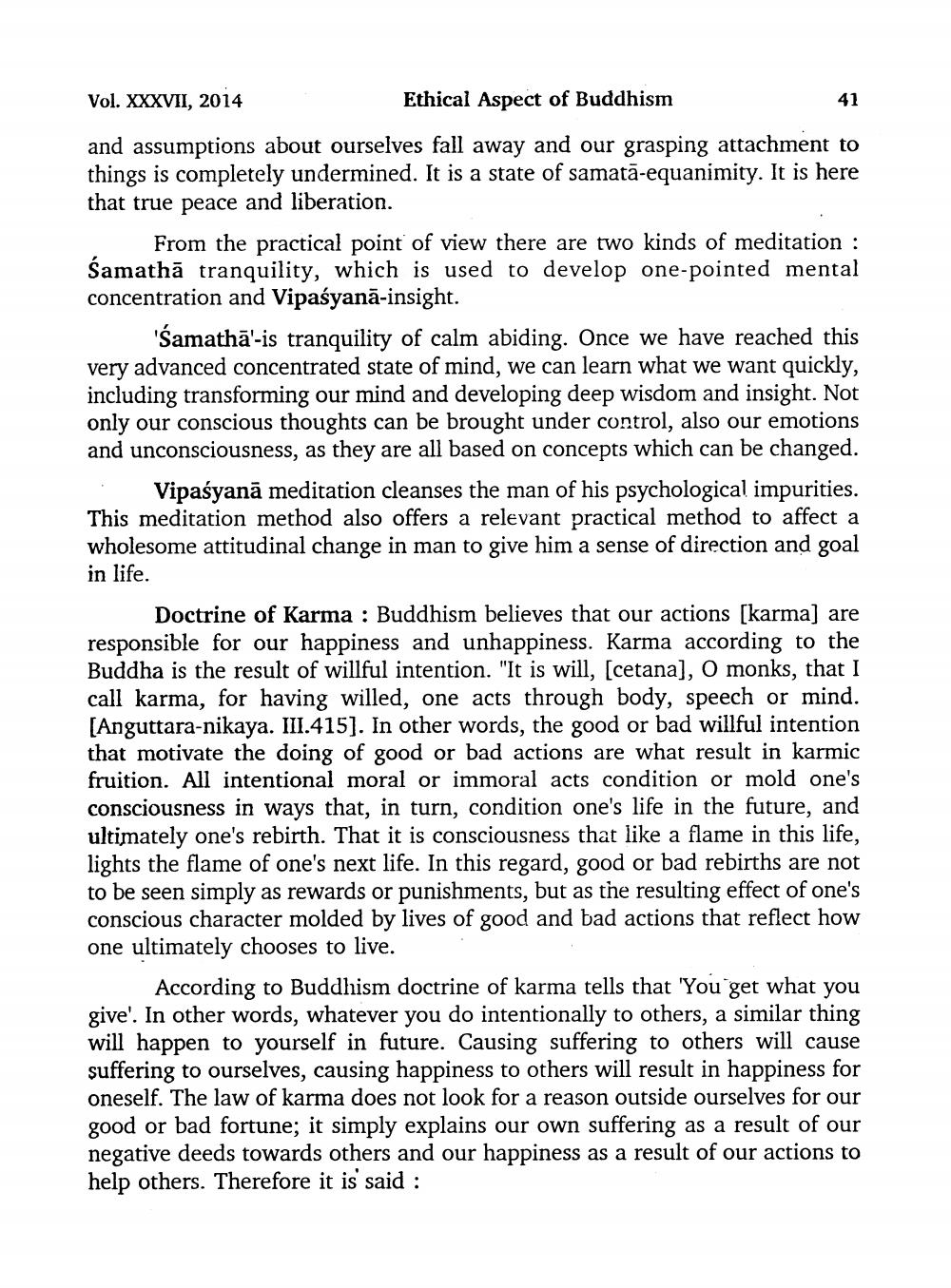________________
Vol. XXXVII, 2014
Ethical Aspect of Buddhism
41
and assumptions about ourselves fall away and our grasping attachment to things is completely undermined. It is a state of samatā-equanimity. It is here that true peace and liberation.
From the practical point of view there are two kinds of meditation : Samathā tranquility, which is used to develop one-pointed mental concentration and Vipaśyanā-insight.
Samathā'-is tranquility of calm abiding. Once we have reached this very advanced concentrated state of mind, we can learn what we want quickly, including transforming our mind and developing deep wisdom and insight. Not only our conscious thoughts can be brought under control, also our emotions and unconsciousness, as they are all based on concepts which can be changed.
Vipaśyanā meditation cleanses the man of his psychological impurities. This meditation method also offers a relevant practical method to affect a wholesome attitudinal change in man to give him a sense of direction and goal in life.
Doctrine of Karma : Buddhism believes that our actions [karma) are responsible for our happiness and unhappiness. Karma according to the Buddha is the result of willful intention. "It is will, [cetana), O monks, that I call karma, for having willed, one acts through body, speech or mind. [Anguttara-nikaya. III.415]. In other words, the good or bad willful intention that motivate the doing of good or bad actions are what result in karmic fruition. All intentional moral or immoral acts condition or mold one's consciousness in ways that, in turn, condition one's life in the future, and ultimately one's rebirth. That it is consciousness that like a flame in this life, lights the flame of one's next life. In this regard, good or bad rebirths are not to be seen simply as rewards or punishments, but as the resulting effect of one's conscious character molded by lives of good and bad actions that reflect how one ultimately chooses to live.
According to Buddhism doctrine of karma tells that 'You get what you give'. In other words, whatever you do intentionally to others, a similar thing will happen to yourself in future. Causing suffering to others will cause suffering to ourselves, causing happiness to others will result in happiness for oneself. The law of karma does not look for a reason outside ourselves for our good or bad fortune; it simply explains our own suffering as a result of our negative deeds towards others and our happiness as a result of our actions to help others. Therefore it is said :




